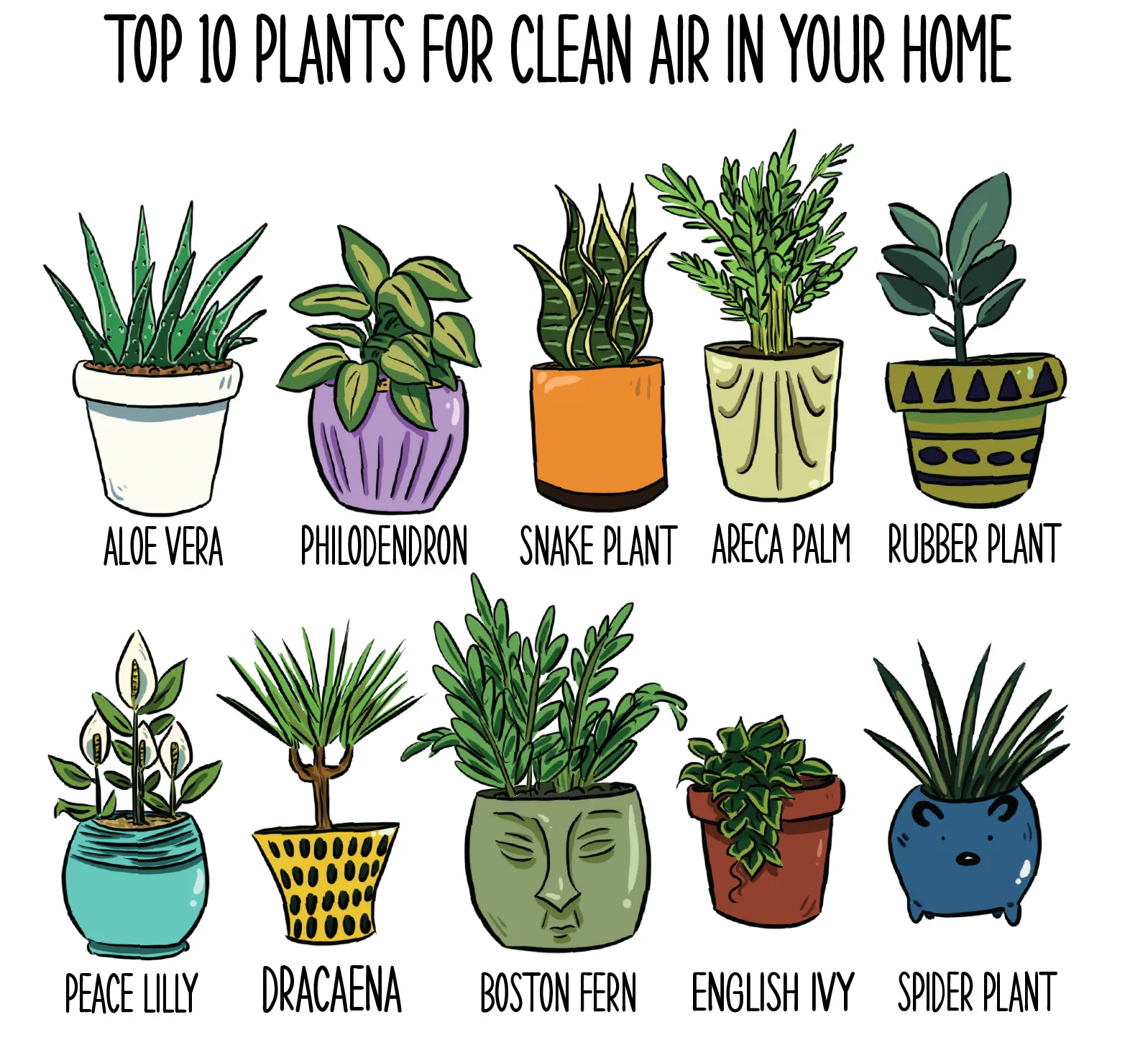Protect your houseplants from the cold, and get better air quality.
Fall is here, and the holiday season is just around the corner. When the weather gets cold, and people start decorating their homes for entertaining, indoor plants of all kinds become a popular choice to liven up the home.
But did you know that too much AC and heat can kill your plants? And, did you know that there are certain plants that are known to purify your home’s air quality? Don't worry, there are tons of plants that can survive air conditioning. Here’s what you need to know about indoor gardening and your home:
Have a heating, cooling, or plumbing problem, but no time to wait for a repairman? Need a second opinion on an existing quote?
We’ll give you free advice about your question or problem. In many cases, you’ll get an estimate or the help you need during the video call.
The right amount of humidity is key.
Low humidity is probably the biggest hurdle to overcome during winter. The humidity level in heated homes can drop to 10 - 20% in winter and plants prefer a level closer to 50%.1 Having plants near a heat vent takes away the humidity that most plants need to survive. And having a plant near a dehumidifier can take the moisture out of the air that the plant needs. The best way to combat this is to move the plants away from any air vents for the heating and AC unit.
PRO TIP: Most plants, like people, are comfortable in daytime temperatures between 65 to 75 degrees Fahrenheit and nighttime temps above 50 degrees Fahrenheit.
Switch up your watering routine.
It may sound counter-intuitive, but a lot of indoor plants need less water during the winter. While it's true that winter air is drier, plants generally experience a slower rate of growth during the cold weather. But don’t ignore them completely. Instead, use a spray bottle to mist the leaves of the plants in order to increase the amount of moisture the plant is absorbing.
PRO TIP: Try to use water that is about the same temperature as the air, to avoid shocking the plant's roots.
Cover up your plants for extra protection.
Small plants can be put inside terrariums in order to protect them from the blowing air of the heater and AC, and they can also add a cool look to your house. Using a vent deflector is a great way to channel the flow of the air away from the plant. The most important thing is to make sure that the plant is never in the direct path of a vent.2
The best plants to help the air quality in your home.
 Aloe vera plants clear formaldehyde and benzene from the air and are perfect to put in a sunny window since it’s a succulent. Another bonus of the aloe vera plant is you can use the gel from inside the leaves to help heal cuts and burns. Overall, aloe vera is one of the best plants for indoors. The peace lily is another top choice for the best plants to improve the indoor air quality of a home; it’s the number one rated plant by NASA for cleaning the air of pollutants and is one of the easier plants to care for. It only needs shade and watering once a week. However, keep in mind that the leaves can be toxic to pets and children. Boston Ferns, Palm Trees, and English Ivy3 are a few other plants known to keep air quality fresh and happy.
Aloe vera plants clear formaldehyde and benzene from the air and are perfect to put in a sunny window since it’s a succulent. Another bonus of the aloe vera plant is you can use the gel from inside the leaves to help heal cuts and burns. Overall, aloe vera is one of the best plants for indoors. The peace lily is another top choice for the best plants to improve the indoor air quality of a home; it’s the number one rated plant by NASA for cleaning the air of pollutants and is one of the easier plants to care for. It only needs shade and watering once a week. However, keep in mind that the leaves can be toxic to pets and children. Boston Ferns, Palm Trees, and English Ivy3 are a few other plants known to keep air quality fresh and happy.
Now that you’ve made sure to take care of your plants, make sure you’re taking care of yourself! If you have questions about quality humidifiers, or you want to check out your home’s heating before the cold really sets in, give Commercial Service a call at 812-339-9114, and we’d be happy to help.



